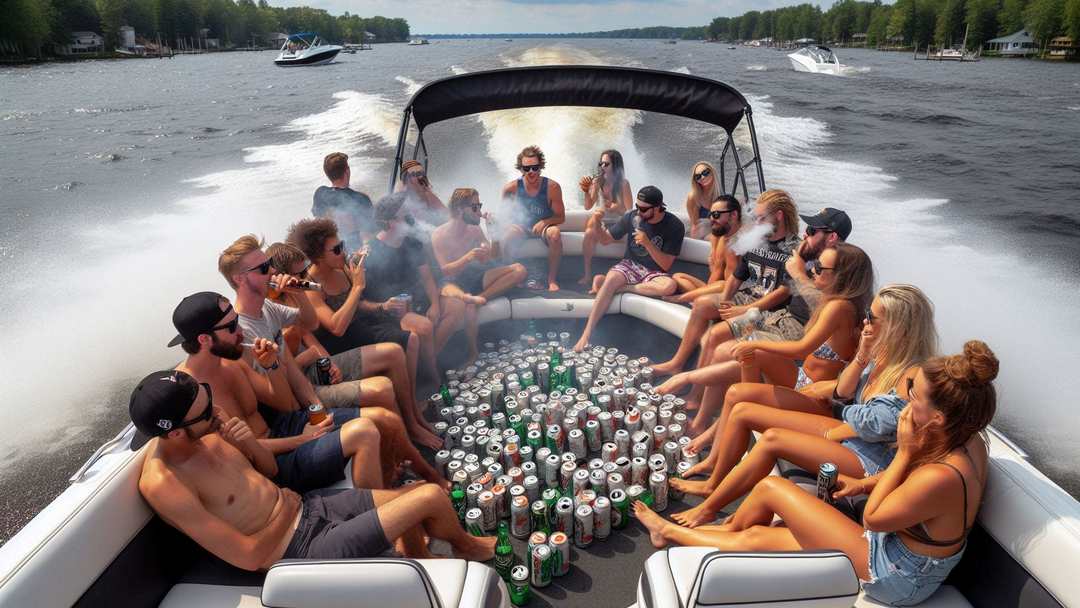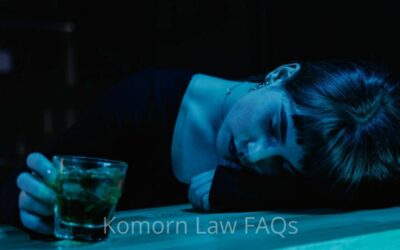If it’s got a motor, it’s a BUI
We got lakes, we got boats, we got alcohol, we got cannabis all the fun you can possibly find on a holiday weekend in the summer. Just don’t combine them all or you’ll be calling us or your cousin Vinny.
Operating a Boat Under the Influence (OUI)
Michigan law strictly prohibits operating a motorboat under the influence of alcohol or drugs, similar to driving under the influence (DUI) laws. This applies to all vessels with a motor, including personal watercraft (PWCs) [MCL 324.80176]. There are two main ways a boater can be considered OUI:
- Blood Alcohol Content (BAC): A BAC of 0.08% or greater is considered operating under the influence. This is determined by a breath, blood, or urine test administered by a law enforcement officer.
- Visible Impairment: Regardless of BAC, if an officer observes the boater’s ability to operate the vessel is visibly impaired by alcohol or drugs, they can be arrested for OUI.
Visible Impairment means anything they say it means!!
The consequences of a BUI conviction in Michigan can be severe. A first offense is typically a misdemeanor, punishable by fines, jail time, and the loss of boating privileges. Multiple convictions within ten years escalate the offense to a felony, carrying harsher penalties. Additionally, causing serious injury or death while boating under the influence can result in felony charges with significant prison sentences.
324.80176 Operation of or authorizing operation of motorboat while under influence of alcoholic liquor or controlled substance prohibited; visible impairment; violation as felony; penalty; “serious impairment of a body function” defined; operation by person less than 21 years of age; “any bodily alcohol content” defined; requirements; “operate” defined.
Sec. 80176.
Passengers and Alcohol Consumption
While there is no specific law prohibiting passengers from drinking alcohol on a boat in Michigan, it’s important to be aware of the potential dangers. Excessive alcohol consumption can impair judgment and coordination, increasing the risk of accidents or falls overboard. Passengers who are intoxicated may also become loud or disruptive, distracting the operator and jeopardizing the safety of everyone on board.
Here are some safety tips for passengers:
- Drink responsibly and in moderation.
- Be aware of your surroundings and potential hazards.
- Remain seated while the boat is in motion.
- Wear a life jacket at all times.
Additional Safety Considerations
Boating safety goes beyond just avoiding alcohol. Here are some other crucial aspects to remember:
- Boating education: Taking a boating safety course can equip you with the knowledge and skills to navigate safely. Michigan requires boaters born after June 30, 1996, to complete a boating safety course to operate a motorboat or PWC https://www.michigan.gov/dnr/things-to-do/boating/safety-certificate.
- Life jackets: Ensure everyone on board has a properly fitting life jacket readily available and consider wearing them at all times.
- Boating equipment: Have all necessary safety equipment on board, including fire extinguishers, flares, and signaling devices.
- Weather conditions: Always check the weather forecast before heading out and be prepared for sudden changes.
- Local regulations: Be aware of any specific boating regulations or restrictions that may apply to the water body you’re on.
Law Firm VIctories
Your Rights
DUI











